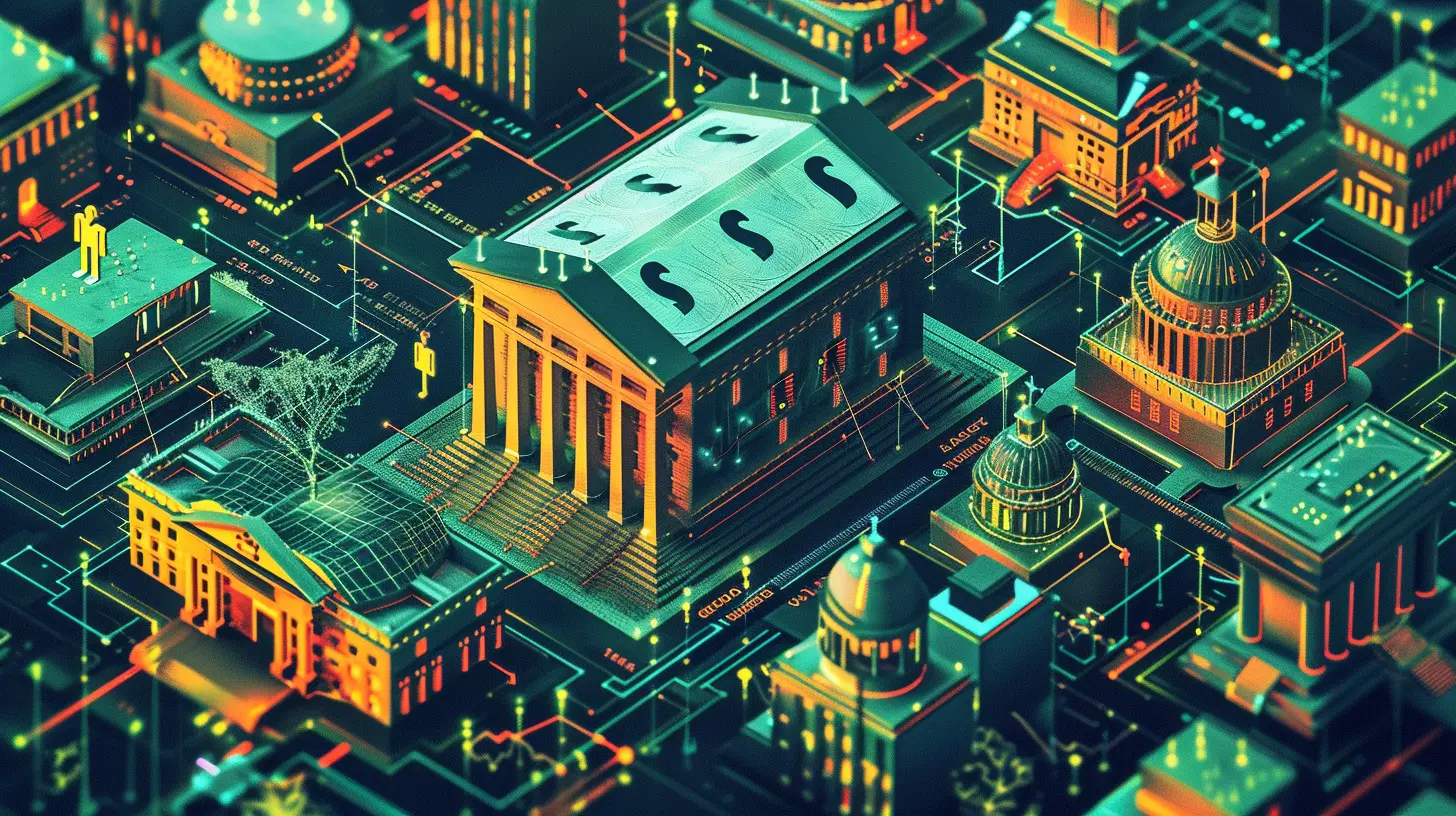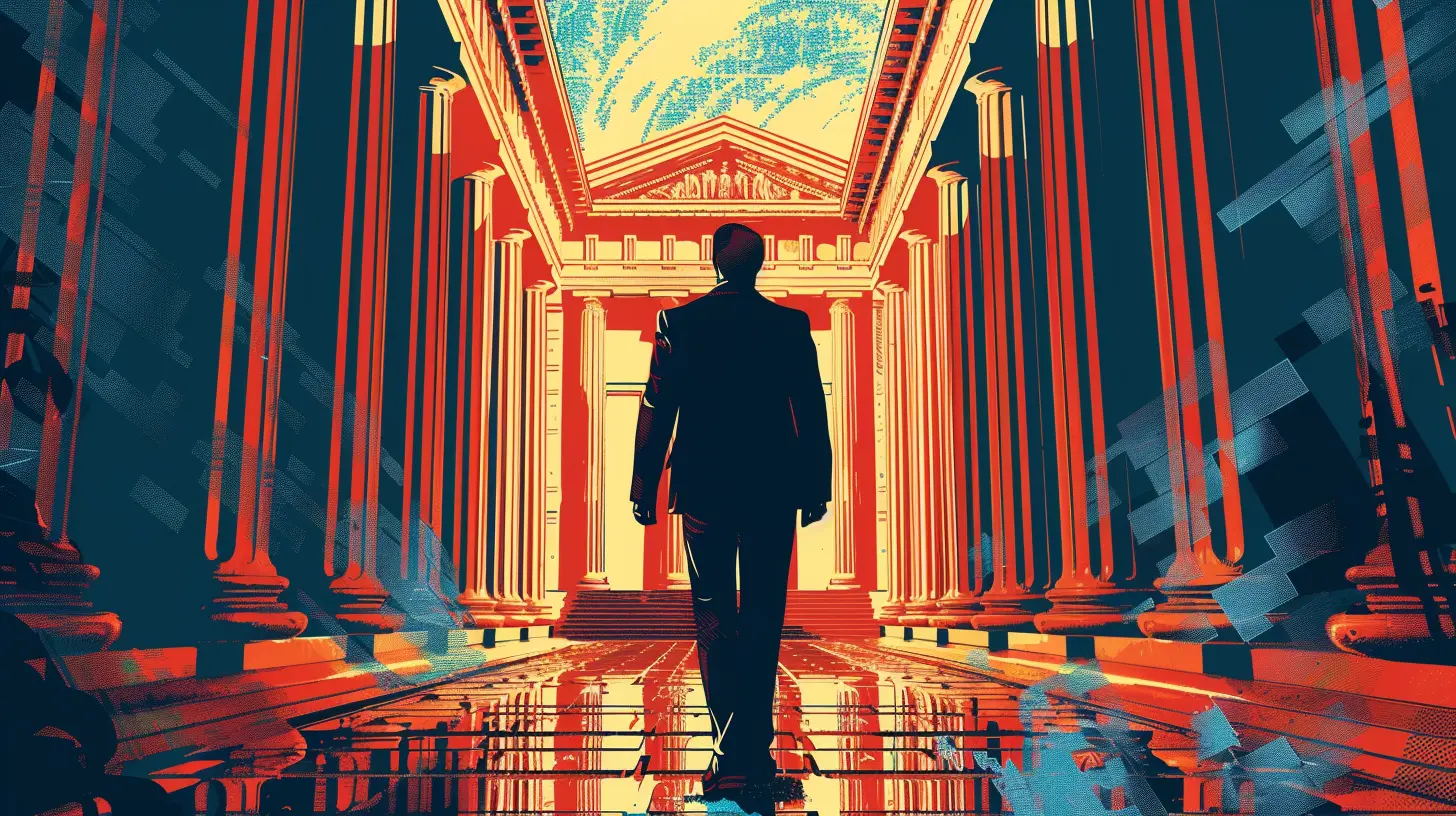Unpacking the Impact of FinTech on Traditional Banking
24 November 2025
Welcome to the great financial face-off: FinTech vs. Traditional Banking. In one corner, we have the age-old institutions with marble floors, mahogany desks, and a customer service line that might put you on hold until your next birthday. And in the other corner, we’ve got the slick, app-powered, hoodie-wearing FinTech crowd that’s rewriting all the old money rules with more code and fewer neckties.
So, what happens when Silicon Valley storms the citadel of Wall Street? Grab your popcorn (or your crypto wallet) as we unpack the impact of FinTech on traditional banking—one witty, insightful paragraph at a time.
What Exactly Is FinTech, Anyway?
Let’s start with the basics. FinTech is short for "financial technology," which is basically just using tech to make financial services faster, cheaper, more efficient, and—let’s be real—less soul-crushing.Gone are the days when we had to physically enter a bank just to deposit a $5 check. Thanks to FinTech, we can now do that while binge-watching Netflix and wearing pajamas.
From mobile banking apps and robo-advisors to peer-to-peer lending and buy-now-pay-later services, FinTech is like the cool cousin who shows up at the family reunion with flashy gadgets and zero interest in tradition.
The Traditional Banking Old Guard: Reliable or Just Really Slow?
Traditional banks have been around longer than sliced bread. They pride themselves on being stable, trustworthy, and dependable. But sometimes, they’re about as agile as a walrus on a Segway.Sure, they’ve got legacy systems and regulatory know-how, but those same systems can be clunky and slow. And let’s not forget those dreaded trips to the bank branch, where you wait in line for 40 minutes to speak to someone about an overdraft fee you didn’t even know you had.
FinTech companies saw all this and thought, “Yeah, we can do better.”
The David and Goliath Battle: FinTech's Rise to Fame
Let’s rewind the clock to the 2008 financial crisis. While traditional banks were busy explaining to Congress why the economy had entered a full-blown meltdown, FinTech companies quietly started gaining ground.They offered transparency, ease of use, and innovation. They didn’t come with hidden fees or confusing jargon. Most importantly, they solved real problems real fast. Imagine your bank app with an IQ boost and a user interface that doesn’t feel like it's from 1997.
By 2020, FinTech wasn’t the underdog anymore. It was winning customers by the millions—and guess what? People liked it. Even Grandma figured out how to Venmo.
FinTech's Magic Spells: Innovation, Disruption, and Convenience
You know that moment in a movie when the unlikely hero finds their superpower? That’s what FinTech did to banking. It turned a traditionally rigid industry into something sleek, accessible, and dare we say... fun?1. Mobile-First Services
Banks? They started with branches. FinTech? It started with apps. This shift meant that people could now manage their finances from anywhere: the couch, the gym, or even the bathroom (don’t pretend you haven’t done it).2. AI & Machine Learning
What used to require an entire team of analysts can now be handled by artificial intelligence in seconds. Fraud detection? Automated. Investment advice? Robo-advised. Loan processing? Done while you sip your latte.3. Lower Fees and Greater Accessibility
Traditional banks made money with fees that felt sneakily hidden like Easter eggs—only less fun to find. Meanwhile, FinTech shouted from the rooftops: “No more hidden charges!” It democratized financial services for people who were often excluded—like freelancers, students, or the credit-score-challenged.4. Hyper-Personalization
FinTech platforms know you. Really know you. They analyze your behavior, spending history, and preferences to offer personalized suggestions and solutions. It’s like having a financial BFF who won’t judge your $18 avocado toast habit.Traditional Banks Strike Back: Adapt or Die
The big banks were napping while FinTech was sprinting—but now they're wide awake. Like dinosaurs learning to dance, they’ve started investing in digital transformation too.Some have acquired FinTech startups. Others have launched their own mobile banking spinoffs—kind of like when your dad starts using TikTok. It’s both impressive and slightly uncomfortable.
Banks are now hustling to modernize their platforms, roll out AI-powered tools, and embrace open banking. Because here's the truth: if they don’t innovate, they’ll get left in the digital dust.
The Unexpected BFFs: Collaboration Between Banks and FinTech
Plot twist: this isn’t just a competition. Sometimes, it’s a bromance in the making.Many banks realized that partnering with FinTech companies was the smart play. Why fight the tech gods when you can harness their powers?
This collaboration allows banks to offer better digital experiences, while FinTechs get access to the regulatory know-how and customer trust that banks have spent decades building. It’s a win-win—like peanut butter and jelly, if the peanut butter had a board of directors and the jelly was coded in Python.
Where Consumers Win (And Occasionally Lose)
For all of us average Joes and Janes, the FinTech revolution has been largely awesome. We’ve got faster payments, clearer budgeting tools, and smarter investments. Managing money used to be about as fun as a dentist visit; now, it’s kind of cool.There’s just one small warning sign: not all FinTechs are created equal. Some pop up fast and disappear faster. Others get shady with your data. And let's not forget the risk of app outages, especially when you’re trying to split a bill after a group dinner.
So yes, consumers win big—but it pays to stay informed and stick with reliable platforms.
Regulatory Roller Coaster: Who’s Minding the FinTech Store?
Here’s where things get spicy. Banks are heavily regulated, with rules for everything from lending to laundering (money, not socks). But FinTech? It’s been more of a Wild West situation.Regulators are catching up, but it hasn’t been easy. They’re trying to hold FinTechs to similar standards without smothering innovation. It’s a tricky balance—like serving sushi on a rollercoaster.
Expect to see more scrutiny in the future. Governments don’t want people losing their life savings to apps that disappear like Snapchat messages.
What This Means for the Future of Banking
So, what’s next in this financial soap opera?We’re likely heading toward a hybrid financial system—part big bank, part tech wizardry. Maybe your bank of the future will offer blockchain-backed savings accounts, AI-powered personal finance advice, and customer service that actually responds before you grow a beard.
FinTech isn’t replacing traditional banking. It’s transforming it, like a caterpillar turning into a butterfly—only with more spreadsheets and less pollen.
Will Traditional Banks Ever Be “Cool”?
Well, have you seen them lately? Some traditional banks now offer slick mobile apps, zero-fee savings accounts, and even live chat support that doesn’t feel like talking to a toaster. So… maybe?But coolness isn’t just about polished apps. It’s about being user-friendly, transparent, and adaptive. If traditional banks can keep evolving, they might just earn a spot at the FinTech lunch table.
Final Thoughts: Let the Best Experience Win
At the end of the day, this isn’t about killing off traditional banking or worshipping at the altar of FinTech. It’s about finding the best experience for the customer—you and me.Whether you like the old-school charm of brick-and-mortar banks or the digital magic of FinTech startups, there’s room for both. Just remember to keep asking questions, read the fine print, and maybe don’t put your entire savings in the newest app with a dog-inspired logo.
The banking world is changing fast. Strap in, keep your wallet (digital or actual) close, and enjoy the ride.
TL;DR (Too Long; Didn’t Read)
- FinTech is revolutionizing financial services with technology, speed, and convenience.- Traditional banks are adapting with digital upgrades and FinTech partnerships.
- Consumers benefit from better services, but should stay mindful of tech risks.
- The future of banking is a hybrid model, combining innovation with stability.
all images in this post were generated using AI tools
Category:
Business TrendsAuthor:

Remington McClain
Discussion
rate this article
1 comments
Sierra McCaw
Embracing the FinTech revolution opens doors to innovation and customer-centric solutions in traditional banking. Let's celebrate the transformative power of technology, driving efficiency and enhancing financial experiences for everyone involved!
December 25, 2025 at 5:58 AM

Remington McClain
Thank you for your insightful comment! Indeed, embracing FinTech is crucial for traditional banks to innovate and improve customer experiences.


